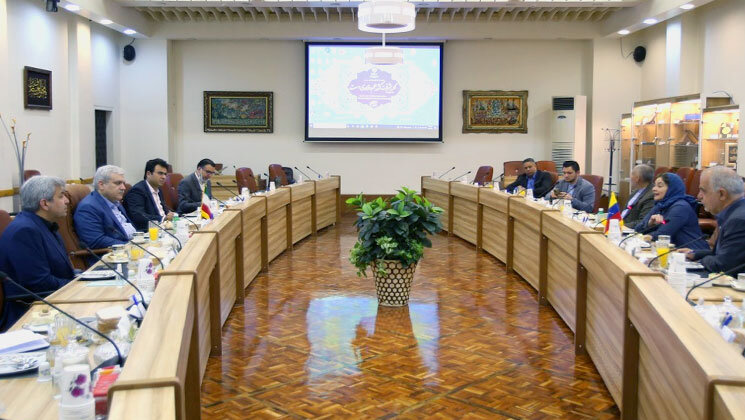Venezuela seeks to use Iran's technological capabilities

TEHRAN – Iranian Vice President for Science and Technology Sourena Sattari and Venezuelan Minister of Science and Technology Gabriela Servilia Jimenez discussed enhanced technological cooperation in the field of agriculture, medicine, and medical equipment.
In a meeting in Tehran on Monday, Jimenez said that medical equipment, animal husbandry technologies, cultivation of medicinal plants, animal medicine, agriculture, advanced materials, and the environment are among the areas where Venezuela is interested in using Iran's capabilities.
Iran can provide significant help to Venezuela’s health sector, the pharmaceutical sector has faced the most damage due to sanctions, and we need raw materials and active pharmaceutical ingredients. These materials are included in the field of all medicines, including recombinant bio-chemicals and specifically, anti-cancer drugs, linear accelerators, and equipment, she explained.
Stem cells are one of the areas where we are interested in sharing our experiences with Iran and using Iran's achievements, she highlighted.
She went on to say that “Venezuela is the ninth country in the world in terms of biodiversity and we are ready to cooperate in the field of medicinal plants, which can be a beneficial capacity for technological development.”
One of the challenges of technological interactions is the mechanism of financial exchanges between the two countries, for which a solution must be prepared with two-way interactions, Sattari stated, noting that many knowledge-based companies use innovative tools to deal with sanctions.
For Iran-made products to enter the Venezuelan market, especially in the pharmaceutical and medical fields, a specific mechanism for approvals and standards should be defined and introduced to the firms, he stated.
Knowledge-based companies
Leader of the Islamic Revolution Ayatollah Seyyed Ali Khamenei designated the current Iranian year as “The Year of Production: Knowledge-Based and Job-Creating”.
Medical equipment, animal husbandry, medicinal plants, agriculture, and the environment are among the areas where Venezuela is interested in using Iran's capabilities.
Strengthening knowledge-based companies is on the agenda, raising hope for reducing obstacles on the path to development.
The Leader has called on all Iranians, including citizens and government officials, to work hard to boost knowledge-based production and create new jobs.
Today, the country's knowledge-based ecosystem accounts for more than 3 percent of GDP. And the figure is projected to reach 5 percent, however, the main goal is to step toward a 10 percent share in GDP, Vice President for Science and Technology, Sourena Sattari told Fars on February 13.
The share of knowledge-based companies in the country's economy has exceeded 9 quadrillion rials (about $34 billion), and since 2019, it has experienced a growth of more than 450 percent, he stated.
There are currently 6,263 knowledge-based companies operating in the country, offering advanced products and services in various fields of technology to domestic and foreign markets, and some of them have entered international markets, Siavash Maleki, deputy head of the Fund, stated.
The fields of aircraft maintenance, steel, pharmaceuticals, medical equipment, oil, and gas are among the sectors that researchers in technology companies have engaged in, leading to import reduction.
FB/MG
Leave a Comment